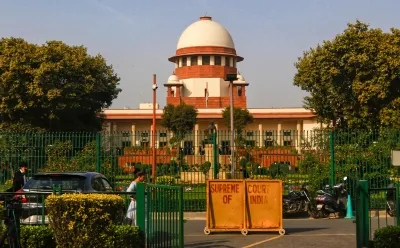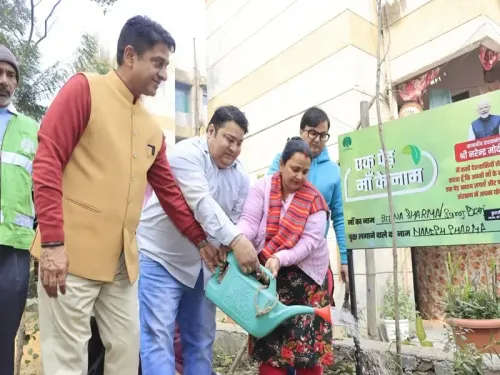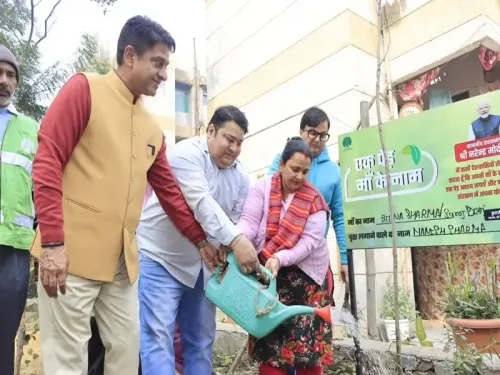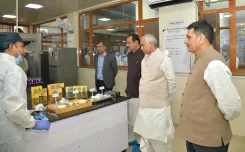Supreme Court Halts Delhi HC Ruling on Ayushman Bharat MoU

Synopsis
Key Takeaways
- The Supreme Court paused the Delhi HC's directive regarding the Ayushman Bharat scheme.
- A new MoU must be established between the Delhi government and the Union Ministry.
- The PM-ABHIM scheme is crucial for ensuring healthcare access for Delhi residents.
- The Delhi government argues the ruling challenges the executive powers of the Union.
- The PM-JAY initiative aims to provide health coverage to economically disadvantaged families.
New Delhi, Jan 17 (NationPress) In a temporary ruling issued on Friday, the Supreme Court has halted the enforcement of the Delhi High Court's directive, which mandated the local government and the Union Ministry of Health and Family Welfare to establish a Memorandum of Understanding (MoU) for the execution of the Ayushman Bharat scheme in the national capital.
A panel of Justices B.R. Gavai and A.G. Masih delivered the interim ruling while deliberating on a special leave petition submitted by the Delhi government against the December 24 ruling of the Delhi HC, which instructed the concerned parties to finalize an MoU by January 5, 2025.
While issuing a notice, the Justice Gavai-led panel sought replies from the Union government and other relevant parties, including AIIMS Delhi, regarding the issue. In its contested ruling, a bench led by Justice Prathiba M. Singh of the Delhi High Court asserted that the scheme must be fully implemented to ensure that the citizens of Delhi receive the necessary funds and benefits under the PM-ABHIM (Ayushman Bharat Health Infrastructure Mission).
“The failure to implement the PM-ABHIM Scheme in Delhi, while 33 States and Union Territories have already enacted it, would be unjustifiable,” the bench, which also included Justice Manmeet Pritam Singh Arora, remarked.
The court clarified that this MoU would be executed regardless of any model code of conduct, as the scheme is intended for the welfare of Delhi’s citizens.
“This MoU shall be executed irrespective of a model code of conduct, if applicable, as it has been under the court's supervision and aims to benefit the residents of Delhi. The finalized MoU should be presented before this court at the next hearing,” stated the Delhi HC.
During a prior session, the Delhi High Court observed that the PM-ABHIM scheme was only being piloted for diagnostic labs at the Indira Gandhi Hospital, and discussions were ongoing between the Delhi State Health Mission and the Mission Director of the National Health Mission regarding the PM-ABHIM Scheme's broader implementation in Delhi.
Before the apex court, the Delhi government contended that the disputed decision redefined the executive authority of the Union government concerning public health in the capital, contrary to the constitutional framework.
It further noted that under the Ayushman Bharat scheme, the Centre would cover 60% of the capital expenses, while the Delhi government would contribute 40%, but neither would bear the operational costs.
The PM-JAY was initiated by the Union government to achieve Universal Health Coverage (UHC) for Economically Weaker Sections (EWS) and Below Poverty Line (BPL) families, adhering to the recommendations of the National Health Policy 2017. This scheme provides health coverage of up to Rs 5 lakh, benefiting over 12 crore impoverished and vulnerable families (approximately 55 crore beneficiaries) nationwide.










